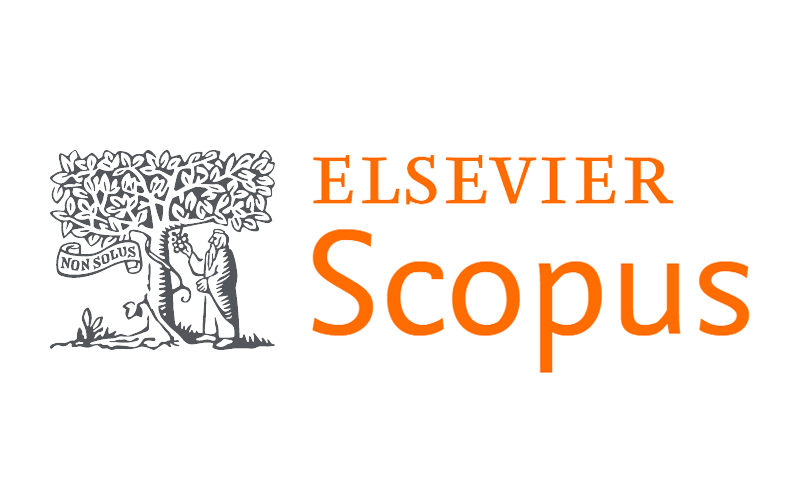AI and its application within UK healthcare: British Medical Association perspective
DOI:
https://doi.org/10.7196/SAMJ.2025.v115i5b.3669Keywords:
UK healthcare, Artificial IntelligenceAbstract
This paper is based on a talk given by Dominic Norcliffe-Brown of the British Medical Association (BMA) to the South African Medical Association on 28 November 2024, which explained the BMA policy paper ‘Principles for Artificial Intelligence (AI) and its application in healthcare’. The policy paper provides further detail on the information discussed below.
References
1. CliffordM.DepartmentforScience,InnovationandTechnology.AIOpportunitiesActionPlan.January 2025. https://assets.publishing.service.gov.uk/media/67851771f0528401055d2329/ai_opportunities_ action_plan.pdf (accessed 24 February 2025).
2. British Medical Association. Principles for Artificial Intelligence (AI) and its application in healthcare. September 2024. https://www.bma.org.uk/media/njgfbmnn/bma-principles-for-artificial-intelligence- ai-and-its-application-in-healthcare.pdf (accessed 24 February 2025).
3. Liu B. ‘Weak AI’ is likely to never become ‘strong AI’, so what is its greatest value for us? March 2021 https://arxiv.org/pdf/2103.15294 (accessed 24 February 2025).
4. HM Government. National AI Strategy. September 2021. https://assets.publishing.service.gov.uk/ media/614db4d1e90e077a2cbdf3c4/National_AI_Strategy_-_PDF_version.pdf (accessed 24 February 2025).
5. Mayer E, Harrison White S, Klaber B, et al. The Health Foundation. Innovating for improvement. December 2018 https://www.health.org.uk/sites/default/files/2019-05/IFI%20R6%20Imperial%20 Final%20report_1.pdf (accessed 24 February 2025).
6. Yim J, Chopra R, Spitz T, et al. Nature Medicine. Predicting conversion to wet age-related macular degeneration using deep learning. May 2020. https://www.nature.com/articles/s41591-020-0867-7 (accessed 24 February 2025).
7. NationalInstituteforHealthandCareExcellence.Sleepiototreatinsomniaandinsomniasymptoms. May 2022. https://www.nice.org.uk/guidance/mtg70/resources/sleepio-to-treat-insomnia-and- insomnia-symptoms-pdf-64372230458053 (accessed 24 February 2025).
8. Mourby M. ‘Leading by Science’ through Covid-19: The NHS Data Store & automated decision- making. Int J Population Data Sci April 2021. https://pmc.ncbi.nlm.nih.gov/articles/PMC8189169/ (accessed 24 February 2025).
9. Wong F, Zheng E, Valeri L, et al. Discovery of a structural class of antibiotics with explainable deep learning. December 2023 https://www.nature.com/articles/s41586-023-06887-8 (accessed 24 February 2025).
10. Pinto-Coelho L. Bioengineering. How artificial intelligence is shaping medical imaging technology: A survey of innovations and applications. December 2023. https://pmc.ncbi.nlm.nih.gov/articles/ PMC10740686/ (accessed 24 February 2025).
11. Spatharou A, Hieronimus S, Jenkins J. McKinsey. Transforming healthcare with AI: The impact on the workforce and organizations. March 2020. https://www.mckinsey.com/industries/healthcare/our- insights/transforming-healthcare-with-ai (accessed 24 February 2025).
12. Ewals L, van der Wulp K, van den Borne B, et al. The effects of artificial intelligence assistance on the radiologists’ assessment of lung nodules on CT scans: A systematic review. J Clin Med May 2023. https://pmc.ncbi.nlm.nih.gov/articles/PMC10219568/ (accessed 24 February 2025).
13. Lenharo M. AI detects eye disease and risk of Parkinson’s from retinal images. Nature September 2023. https://www.nature.com/articles/d41586-023-02881-2 (accessed 24 February 2025).
14. Panel for the Future of Science and Technology. European Parliament. Artificial intelligence in healthcare: Applications, risks, and ethical and societal impacts. June 2022. https://www.europarl. europa.eu/RegData/etudes/STUD/2022/729512/EPRS_STU(2022)729512_EN.pdf (accessed 24 February 2025).
15. Healthwatch. Our report highlights impact of digital inclusion on access to healthcare. June 2024.
https://www.healthwatchcambridgeshire.co.uk/news/2024-06-28/our-report-highlights-impact-
digital-inclusion-access-healthcare (accessed 24 February 2025).
16. Lattie E, Stiles-Shields C, Graham A. An overview of and recommendations for more accessible digital
mental health services. Nature Rev Psychol January 2022. https://www.nature.com/articles/s44159-
021-00003-1 (accessed 24 February 2025).
17. Zhang L, Reynolds Losin E, et al. Gender biases in estimation of others’ pain. J Pain. September 2021.
https://www.jpain.org/article/S1526-5900(21)00035-3/fulltext (accessed 24 February 2025).
18. Raphael K. Harvard Global Health Institute. Racial bias in medicine. February 2020. https://
globalhealth.harvard.edu/racial-bias-in-medicine/ (accessed 24 February 2025).
19. Machirori M. A knotted pipeline. November 2022. https://www.adalovelaceinstitute.org/report/
knotted-pipeline-health-data-inequalities/ (accessed 24 February 2025).
20. Stone E. Joseph Rowntree Foundation. AI shifts the goalposts of digital inclusion. February 2024.
https://www.jrf.org.uk/ai-for-public-good/ai-shifts-the-goalposts-of-digital-inclusion#:~:text=AI%20 is%20already%20shifting%20the,them%20too%2C%20if%20they%20choose (accessed 24 February 2025).
21. Ofcom. Online Nation 2023 Report. November 2023. https://www.ofcom.org.uk/siteassets/resources/ documents/research-and-data/online-research/online-nation/2023/online-nation-2023-report. pdf?v=368355 (accessed 24 February 2025).
22. PwC. Department of Business, Energy & Industrial Strategy. The potential impact of artificial intelligence on uk employment and the demand for skills. August 2021. https://assets.publishing.service.gov.uk/ media/615d9a1ad3bf7f55fa92694a/impact-of-ai-on-jobs.pdf (accessed 24 February 2025).
23. Topol E. The Topol Review: Preparing the healthcare workforce to deliver the digital future. February 2019. https://topol.hee.nhs.uk/wp-content/uploads/HEE-Topol-Review-2019.pdf (accessed 24 February 2025).
24. Darzi A, Quilter-Pinner H, Kibasi T. Institute for Public Policy Research. Better health and care for all: A 10-point plan for the 2020s. June 2018. https://www.ippr.org/articles/better-health-and-care-for-all (accessed 24 February 2025).
25. Mori Y, East J, Hassan C, et al. Benefits and challenges in implementation of artificial intelligence in colonoscopy: World Endoscopy Organization position statement. February 2023. https://onlinelibrary. wiley.com/doi/full/10.1111/den.14531 (accessed 24 February 2025).
26. Xiao X, Xue L, Ye L, et al. Health care cost and benefits of artificial intelligence-assisted population- based glaucoma screening for the elderly in remote areas of China: A cost-offset analysis. BMC Pub Health June 2021. https://pubmed.ncbi.nlm.nih.gov/34088286/ (accessed 24 February 2025).
Downloads
Published
Issue
Section
License
Copyright (c) 2025 D Norcliffe-Brown, F McCartney

This work is licensed under a Creative Commons Attribution-NonCommercial 4.0 International License.
Licensing Information
The SAMJ is published under an Attribution-Non Commercial International Creative Commons Attribution (CC-BY-NC 4.0) License. Under this license, authors agree to make articles available to users, without permission or fees, for any lawful, non-commercial purpose. Users may read, copy, or re-use published content as long as the author and original place of publication are properly cited.
Exceptions to this license model is allowed for UKRI and research funded by organisations requiring that research be published open-access without embargo, under a CC-BY licence. As per the journals archiving policy, authors are permitted to self-archive the author-accepted manuscript (AAM) in a repository.
Publishing Rights
Authors grant the Publisher the exclusive right to publish, display, reproduce and/or distribute the Work in print and electronic format and in any medium known or hereafter developed, including for commercial use. The Author also agrees that the Publisher may retain in print or electronic format more than one copy of the Work for the purpose of preservation, security and back-up.





